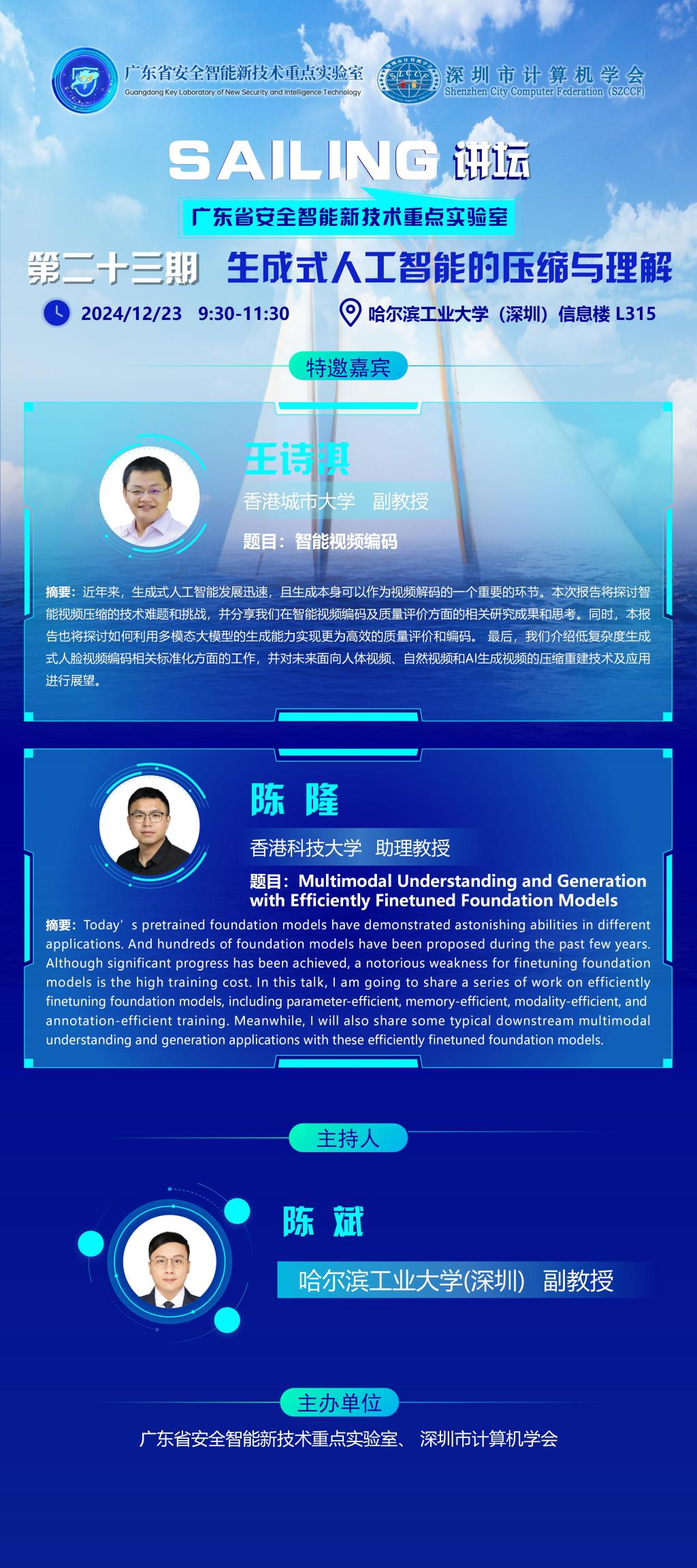SAILING讲坛第二十三期【生成式人工智能的压缩与理解】将于2024年12月23日上午9:30-11:30在哈尔滨工业大学(深圳)信息楼L315举办。本期将有特邀嘉宾香港城市大学王诗淇副教授和香港科技大学陈隆助理教授为我们做前沿的技术分享。

讲者介绍:
Shiqi Wang (王诗淇) is an Associate Professor of Computer Science at the City University of Hong Kong. He holds a Ph.D. (2014) from the Peking University under the supervision of Prof. Wen Gao and a B.Sc. in Computer Science from the Harbin Institute of Technology (2008). Before his current appointment, from Mar. 2014 to Mar. 2016, he was a Postdoc Fellow with the Department of Electrical and Computer Engineering, University of Waterloo, Waterloo, Canada. From Apr. 2016 to Apr. 2017, He was with the Rapid-Rich Object Search Laboratory (ROSE), Nanyang Technological University, Singapore, as a Research Fellow.
Dr. Long Chen (陈隆) is an assistant professor at the Department of Computer Science and Engineering (CSE), Hong Kong University of Science and Technology (HKUST) starting from 2023. He is leading the research group: LONG Group (https://long-group.cse.ust.hk/). Before joining HKUST, he was a postdoctoral research scientist at the DVMM Lab, Columbia University working with Prof. Shih-Fu Chang, and a senior research scientist at Tencent AI Lab. He obtained his Ph.D. degree in Computer Science from Zhejiang University and his Ph.D. advisor is Prof. Jun Xiao. His primary research interests are Computer Vision, Machine Learning, and Multimedia. Specifically, he aims to build an efficient vision system that can understand complex visual scenes as humans. By “human-like”, we mean that the vision systems should be equipped with three types of abilities: 1) Explainable: The model should rely on (right) explicit evidences when making decisions. 2) Robust: The model should be robust to some situations with only low-quality training data (e.g., training samples are biased, noisy, or limited). 3) Universal: The model design is relatively universal.

